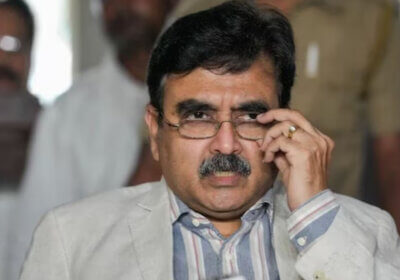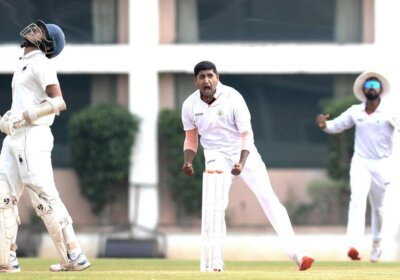The Archaeological Survey of India (ASI) is conducting an archaeological examination of the Gyanvapi mosque complex in Varanasi, Uttar Pradesh, despite the mosque management committee’s petition to the Supreme Court challenging the district court’s order. The survey involves around 40 people, including representatives from ASI, the Gyanvapi mosque management committee, four plaintiffs, and their solicitors. The Varanasi court issued a ruling in response to a petition from the Hindu side, which requested the ASI to conduct a “scientific survey” of the entire Gyanvapi mosque grounds.
Hindus argue that the alleged construction is a “shivling,” while the Muslims stated that it is a part of the fountain system at the “wazukhana,” the reservoir where worshippers bathe before saying namaz. The Supreme Court ordered the section to remain sealed since May 2022.
ASI begins its survey of the Gyanvapi mosque amidst heavy security
The Varanasi district court directed the ASI to conduct an in-depth inspection of the Gyanvapi masjid on Friday to identify whether the mosque stood over an earlier Hindu temple.
ASI is conducting a “scientific survey” of Gyanvapi mosque
On Monday morning, a team from the Archaeological Survey of India (ASI) started an archaeological examination of the Gyanvapi mosque complex in Varanasi, Uttar Pradesh. People who know the situation said on Sunday that the survey is taking place despite the mosque management committee’s petition to the Supreme Court challenging the district court’s order permitting the inspection.
There are about 40 people involved in the survey
The ASI team arrived in Varanasi on Sunday with all the necessary tools. A UP Police team appears walking into the Gyanvapi mosque complex as the ASI survey begins, according to a video by the news agency ANI. There are about 40 people involved, including representatives from ASI, the management committee for the Gyanvapi mosque, four plaintiffs who identify as Hindu women, and their solicitors.
The AIM Committee boycott the survey
No members of the Anjuman Intezamia Masajid Committee are taking the research. Joint Secretary SM Yasin of the committee declared, “We have disregarded the ASI survey. We weren’t there (in the Gyanvapi mosque) for the ASI survey, and neither was our advocate. We’re not taking part in it.”
In response to the Hindu side petition, a “scientific survey” takes out
In response to a petition from the Hindu side requesting that the ASI have the authority to conduct a “scientific survey” of the entire Gyanvapi mosque grounds, the Varanasi court issued its ruling.
Five women who wanted approval for worship at the “Shringar Gauri Sthal” inside the shrine complex submitted the petition in May. Additionally, an object came to light that appeared as a “Shivling” by the Hindu side and a “fountain” by the Muslim side.
What ruling did the Varanasi court make?
The Varanasi district court directed the ASI to conduct an in-depth inspection of the Gyanvapi masjid on Friday to identify whether the mosque stood over an earlier Hindu temple. The court reasoned that this scientific investigation is “necessary” for the “real evidence” to get revealed.
The Supreme Court’s order to keep the section sealed since May 2022 suffered the court. Muslims contend that the area under the seal is a portion of a fountain, but Hindus insist that a Shivling has been coming across there.
What did the Supreme Court rule regarding the Gyanvapi mosque?
The alleged “shivling,” which became apparent when another court directed a footage survey of the complex, once served as ordered by the Supreme Court to remain protected.
The mosque administration insisted that the construction is a component of the fountain system at the “wazukhana,” the reservoir where worshippers bathe before saying namaz.























Leave a Reply